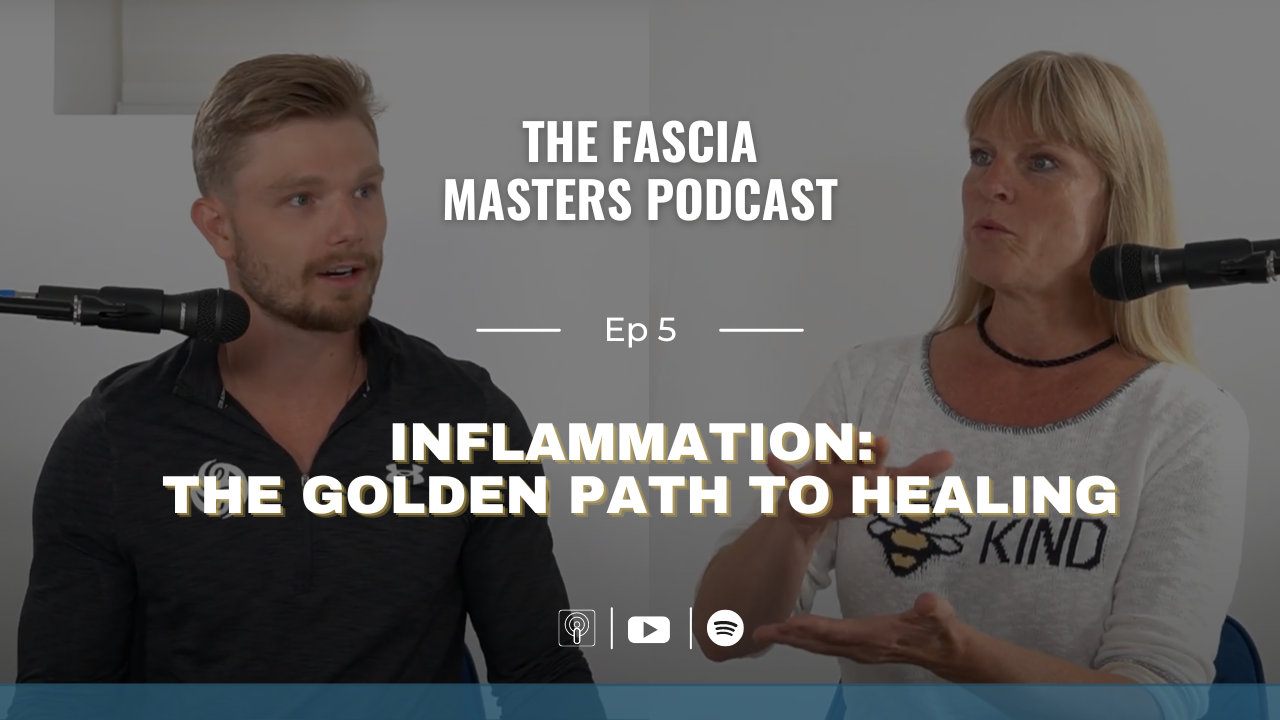Inflammation: The Golden Path to Healing | The Fascia Masters, Season 2 – Episode 5


Inflammation is a term that often carries a negative connotation, as if it's bad for our health. But what if we told you that inflammation is actually a crucial and beneficial process in our bodies? In this podcast episode, we dive into the fascinating world of inflammation, exploring its two primary forms - acute and chronic. We discuss and challenge the conventional wisdom surrounding inflammation, shedding light on how it plays a pivotal role in healing and recovery. Join us as we unravel the mysteries of inflammation and discover why it's not the enemy we once thought it to be.
Inflammation is the directed flow of blood to areas that require extra attention within the body. This process occurs in response to injuries, infections, stress, or any situation that necessitates cellular repair. In essence, inflammation is a fundamental mechanism for promoting health and restoring balance in our bodies. Acute inflammation is the kind that occurs in response to sudden injuries. Consider a scenario where you shatter your ankle in a car accident. Your body immediately springs into action, dispatching inflammation to the affected area. This inflammation is essential for initiating the rebuilding process.
Many of us are familiar with the RICE method, an acronym for Rest, Ice, Compression, and Elevation, commonly recommended for managing acute injuries. However, what if this widely-accepted approach actually hinders the healing process? During the initial stages of injury, the body requires an abundance of energy to repair the damaged tissue. Icing, unfortunately, slows down this critical process by impeding the flow of inflammation. It's like putting a halt sign in front of the body's natural repair crew. This delay can lead to suboptimal healing outcomes and even the formation of scar tissue.
Instead of thwarting the body's natural processes, it is best to support inflammation and harness its potential for healing. This entails practices like proper diaphragmatic breathing, which facilitates fluid movement to and from the injury site, and conscious attention to the injury itself. Another key element in this holistic approach to healing is fascia decompression. By focusing on the fascia, the connective tissue that surrounds our muscles and organs, we can aid in the efficient repair of damaged tissues. This approach promotes a more complete recovery, preventing long-term consequences and complications.
Inflammation, often seen as a foe, is thought of as a friend in this thought-provoking podcast episode. By understanding the body's innate healing mechanisms and supporting inflammation instead of suppressing it, we can achieve better and more complete recoveries from acute injuries. So, the next time you encounter inflammation, remember that it's a natural part of the healing process, and by working with it, we can truly restore our bodies to their optimal states.
You can find us on Spotify or Apple Podcasts. Don't forget to subscribe on your preferred platform - and leave us a comment, we'd love to hear your feedback! Listen to today's episode below.
Learn more about decompressing your fascia in our FREE Ultimate Fascia Decompression Kit.

Responses